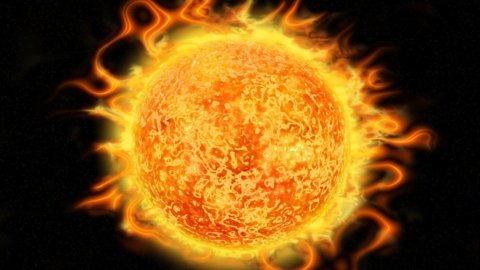Amarone della Valpolicella, a wine known and appreciated all over the world, flies to Italy and abroad and continues to record incredible growth trends. The Association of Historical Families which brings together thirteen great producers of Amarone under the banner of generational work, family management and craftsmanship with particular attention to safeguarding the Valpolicella area and its specificities, has registeredo in the first 10 months of 2021 a + 56% of sales and + 48% of exportsespecially towards Canada, USA, Switzerland and the Scandinavian countries compared to 2020 in which 2.300.000 bottles of Amarone were sold.
The Association of Historic Families which includes important brands such as those of Allegrini, Begali, Brigaldara, Guerrieri Rizzardi, Masi, Musella, Speri, Tedeschi, Tenuta Sant'Antonio, Tommasi, Torre D'Orti, Venturini and Zenato presented these results in Rome during a meeting with the specialized press at Villa Laetitia historic location designed by Armando Brasini in 1911 and owned by the Fendi Venturini family.
Rome was only the last stop in chronological order of a intense program of initiatives carried out from the Historical Families of Amarone all over the world for promote the main wine of Valpolicella as an oenological expression but also as a cultural and historical expression of the territory.
In fact, during spring 2021 an educational journey of tastings on Amarone made in video conference led by Nicola Frasson started, while in Germany (Munich and Hamburg) and in Switzerland (Zurich) the tastings organized in collaboration with the magazine Vinum were led respectively by Claudia Stern and Sigi Hiss.
In the second half of the year, with the improvement of the pandemic situation, it was possible to resume face-to-face events, with more substantial numbers: in June with the organization of a Masterclass aimed at students of the Vinitaly International Academy led by Alison Napjus of Wine Spectators; in September with the presentation to the press in Verona of the Docufilm on Historical Families in October with participation in Vinitaly Special Edition during which a masterclass led by Aldo Fiordelli and dedicated to international operators present at the event was proposed; finally in November with a day (walk around tasting and masterclass) in Milan in collaboration with AIS Lombardia.
For 2022, trusting in the improvement of the pandemic situation, Le Famiglie Storiche have foreign countries on their agenda above all: in the first half of the year, beyond Vinitaly in April, in Europe they have Germany, Switzerland and the Scandinavian countries in particular, nations who traditionally appreciate the Amarone family. In the second half of the year they are confident that they will be able to return to Asian markets and therefore organize promotional activities in this area with particular reference to China.
The Historical Families are established in 2009 to capitalize on a heritage consolidated by each over time and a constant commitment to quality, founding all its roots in the values of historicity and craftsmanship, expressed in every meaning. Their work is aimed at making known and preserving not only their wines, but also one of the most strategic Italian wine production areas.
The territory of the Historical Families is that of Valpolicella, located in the North-East of Italy, in the province of Verona, between Lake Garda and the Lessini Mountains. The particular microclimate, with mild temperatures both in winter and in summer, favors the production of wines of the highest quality.
The production area made up of 19 municipalities in the province of Verona (5 in the classic area and 14 in the DOC area) spread over 8000 hectares, on which the thirteen families make 16% of the total production of Amarone and 20% of the total turnover ( counting just over 300 manufacturing companies).
Valpolicella is basically divided into 3 production areas. Going from west to east, in order, one finds the Valpolicella Classica, which enjoys a more temperate climate, with moderate temperature variations, which favors the production of more fragrant, fruity and floral wines; the Valpolicella Valpantena, the intermediate zone, the first valley east of Verona (whose name, according to the most accredited reconstructions, would mean Valley of the Gods) median with respect to the other two zones of Valpolicella; and finally the Valpolicella Orientale, the hilly area characterized by wider valleys, therefore with colder temperatures in winter, expresses more intense and compact wines, ideal for the production of high quality (it is no coincidence that more than half of the production of Amarone comes from these vineyards).
One of the main characteristics of the whole area, especially in the hills, concerns the presence of dry terraces called “marogne”. They represent a legacy that allows us to understand the extraordinary work of our ancestors. By realizing these terraces, in fact, the ancestors of the Historical Families allowed a double result: a higher yield of the vines, thanks to the greater radiation, and a more comfortable and less tiring work during the year.
Among other things, the Valpolicella area is a candidate to become a UNESCO World Heritage Site. Precisely because of this extraordinary nature, the Historical Families have set themselves the task of protecting and safeguarding the territory, avoiding any type of aggressive urbanization and focusing on eco-sustainability and respect for the environment.





